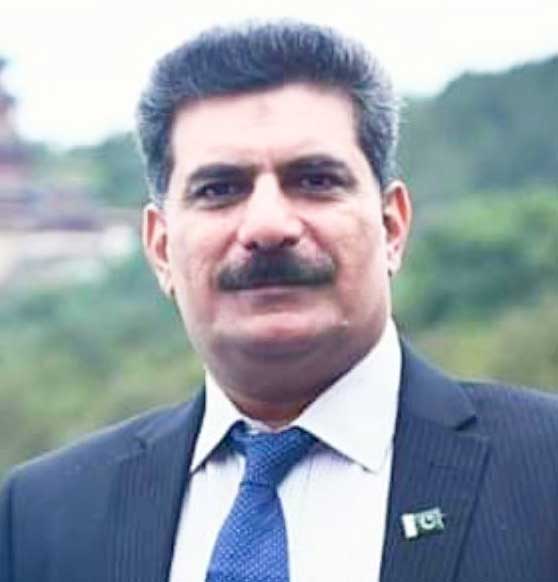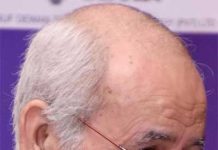16TH December 1971 shattered the dream of Pakistan & created a new Map for the subcontinent which left lasting imprints and legacy in our nation’s history. The bitter memories of the black day is the story of the national day of mourning. Its grief, sorrow and pain still reminds us of a nightmare. Pakistan resolved not to “do it again”. Each successful endeavor has hundreds of failures behind it and if a nation doesn’t prefer to remain in “self-denial” mood and recognize its blunders and take remedial measures with higher goals then a sustainable progress is guaranteed to be attained. Every mistake could be rectified if lessons reviewed and learnt are not repeated obsessively. Every setback is a milestone to success in a nation’s life if both the ruling powerful elites as well as masses identify & analyze their area of weakness to address their inadequacies. The 1971 tragedy occurred beside many factors including Indian sponsored terrorism which fuelled violence, anarchy & riots in East Pakistan. Life keeps serving you the same obstacles again and again until you learn to overcome them.
RAW officer R.K.Yadav made an unaffordable revelation in a published letter that India’s Prime Minister Indira Gandhi, parliament, RAW and Indian armed forces acted in tandem to dismember Pakistan’s Eastern wing. The confessions in his letter are corroborated by B. Raman’s book The Kaoboys of R&AW. He reminds `Indian parliament passed resolution on March 31, 1971 to support insurgency. Indira Gandhi had then confided with Kao that in case Sheik Mujib was prevented from ruling Pakistan, she would liberate East Pakistan from the clutches of the military junta. ‘Not only intelligence officers but also officers of armed forces are employed to carry out subversion and sabotage inside Pakistan.
India also secured Soviet Union support to dismember the East wing of Pakistan. The United Kingdom and France ensured not to support West Pakistan’s stance in the United Nation Security Council UNSC. The USA also deliberately failed to help prevent the loss of East Pakistan.
Culturally, economically, socially and politically both the East and West wings of Pakistan had represented a vast contrast. Indeed there was nothing in common between both the wings of the country. There was a lack of geographical contiguity between both the wings of Pakistan as well which always had allowed India to sabotage the territorial integrity of two wings of the country which were set apart by one thousand miles of India’s territory. Air and Maritime connection between the two wings could be blocked by our enemy state at any time. The Economic and Education sector of East Pakistan were dominated by Hindus who played a very heinous role in brainwashing the young minds of East Pakistan students to provoke them racially, ethnically and linguistically. Anti-two nation theory syllabus was recommended and inculcated into the minds of East Pakistan youth with the display of Gandhi portrait in their educational institutes. Without any shadow of doubt, Indians played a deplorable role by meddling in the country’s internal affairs. But it was our own weaknesses that allowed them to do so. The bureaucratic and political structure of West Pakistan was composed of feudal lords and tribal leaders with a superiority class mindset of dominating and crushing the weaker segments of the country. Indeed it is a long tale of maladministration, sense of pride and blunders by East Pakistan high ups which was optimized by India as an opportunity to disintegrate Pakistan so as to quench its thirst of revenge of the division of subcontinent which resulted into Pakistan and Indian as two separate and independent states. Unfair distribution of resources by West Pakistan authorities deepen the sense of deprivation of East Pakistan. Issue of the national language which was officially declared Urdu created the rift between the two wings of Pakistan as East Pakistan took the national language against the esteem, pride and feeling of nationalism. East Pakistan wanted Dhaka to be the capital of Pakistan as majority i.e. 55% population of Pakistan is composed of them.
Sheikh Mujib Ur Rehman, an East Pakistan leader formed Awami Muslim League in 1951 and presented six point agenda and demanded for provincial autonomy for all the provinces of Pakistan. The dilemma of East Pakistan was that the subsequent governments and political leadership always took the majority province for granted and disregarded their demands hence fuelling their sense of deprivation. The majority of the population was treated as second class citizens for two decades and their agitation of demands were considered as an anti-state activity, labeling them as traitors though they were simply seeking the basic safeguards guaranteed to them by the constitution of the state.
But the most haunting mistake committed both by Z.A Bhutto and Yahya Khan was to deny the majority their right to constitute a government after the 1970 elections leading to the separation and creation of Bangladesh. The crucial consequence from the 1970 elections was that neither of the two largest parties (PPP and Awami League) won a single seat in the other wing. Thus, electorally united Pakistan stood divided. If the results of the 1970 elections were honored, united Pakistan just might have been saved but instead a notorious slogan was raised by Bhutto “udhar tum, idhar hum”. The lack of the acknowledgement of the will & aspirations of the electorate and disrespect of 1971 mandate led to a political crisis which ended in horrible bloodshed due to underhand maneuvers by both the political and military leadership of West Pakistan.
The East Pakistan disaster or tragedy remind us that though no freak of history like United Pakistan, its two ethnically and culturally entirely different wings separated by 1,000 miles of India, could possibly have lasted long if people rights were not denied including the right to information and if the will of the few was not imposed on the many.
Ironically, lessons of 1971 are still left unlearned. Resorting to authoritarian tactics are still the preferred tools of those who control the levers of power in Pakistan. An honest national debate is avoided by those in the corridors of power. It’s time to assess and accept our mistakes instead of the policy of ‘eyes wide shut’ as we cannot afford political experiments as we already have too many. It’s a time to wake up and remember our moments of disaster more than our hours of glory like an alive nation to skip future catastrophes. The Pakistani elite must draw lessons from the great loss and no selfish individuals will be allowed to risk the country’s future for personal gains.
Sign in
Welcome! Log into your account
Forgot your password? Get help
Password recovery
Recover your password
A password will be e-mailed to you.







